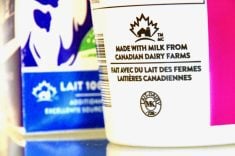Here’s what farm and agri-food groups were saying after an agreement was struck on a new Comprehensive and Progressive Agreement for Trans-Pacific Partnership trade deal (also called TPP-11 or CPTPP):
Cereals Canada
The TPP-11 agreement raises the bar with respect to modern and progressive trading rules in Asia-Pacific and beyond. Canada’s participation demonstrates much needed leadership in advancing trade policy cooperation on the global stage.
Cereals Canada views this agreement as a necessary development for agriculture.
Read Also

The long march to autonomy
The big players in the machinery market keep adding pieces towards autonomous vehicles for farming, but how far away is a final product?
“This agreement is the best opportunity available to improve export competitiveness, growth and diversification for the Canadian cereals sector,” said president Cam Dahl.
An improved trade environment will allow Canadian farmers and exporters to benefit from stronger access. This includes reduced tariffs and a more predictable trading environment.
TPP-11 countries already account for roughly 20 per cent of Canada’s wheat exports.
As a result of this agreement, Cereals Canada expects to see additional growth in existing markets like Japan as well as development in emerging customers throughout all of Asia (such as Vietnam).
Canadian Pork Council
Pork producers can be comforted in knowing that Canadian pork will have competitive access to key markets such as Japan, and developing markets such as Singapore, Vietnam and Malaysia following the signing of the trade deal in March.
“The CPTPP is of tremendous importance to Canadian pork producers who export over 70 per cent of their products to over 100 countries” said chair Rick Bergmann. “Because of improved access to key markets, Canadian pork producers can rest easy knowing that their livelihood and that of thousand other Canadians in rural and urban communities who work in the pork industry is supported by this newest trade deal” he adds.
In 2016, Canadian pork exports to nine out of the ten countries that are members of the CPTPP totalled 380,000 tonnes valued at more than $1.4 billion. With this trade deal concluded, Canadian pork products will continue to be made available to more than 461 million potential consumers under conditions favourable to the Canadian pork industry.
Canadian Agri-Food Trade Alliance
“This is fantastic news,” said president Brian Innes. “The future for Canada’s globally competitive agri-food exporters looks a lot brighter now that we will have competitive access to key markets in the Asia-Pacific and especially Japan.”
Japan is Canada’s third largest export market for agri-food, accounting for $4 billion in 2016 and has remained a strong advocate for the agreement. The CPTPP will not only provide the sector with unprecedented access to the high-value Japanese market and rapidly growing markets like Vietnam and Malaysia, it will also provide Canada with a competitive advantage over the U.S., since that country is not part of the agreement.
“We’re pleased that the new deal keeps the gains of the former TPP agreement intact —particularly the market access provisions,” said Innes. “It’s crucial that we implement this deal quickly.
“Our competitors are not standing still and already have free trade deals in these markets.”
Canadian Federation of Agriculture
Joining the CPTPP will open unprecedented new markets for Canadian farmers producing export-oriented goods, such as red meats, grains and oil seeds.
CFA commends Canada’s trade negotiating team for recognizing the growth potential of our exporters; however, we call on government officials to make good on their commitments to farmers of supply-managed products (such as dairy and poultry), particularly as NAFTA talks continue.
CFA is adamant that the Canadian government stand firm on its position to build on NAFTA’s success and to not concede any additional market access for supply-managed commodities.















